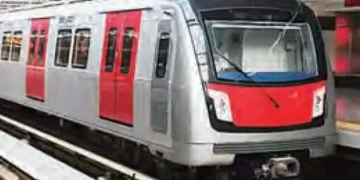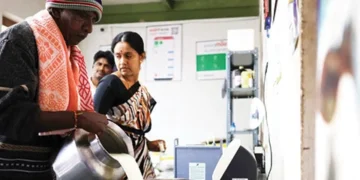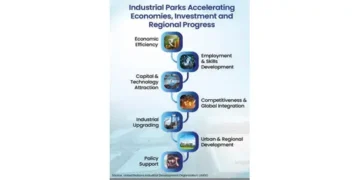Blitz Bureau
NEW DELHI: FROM the first tracks laid in Delhi’s expanding suburbs in the early 2000s to the bustling, techpowered networks now weaving over 20 Indian cities, India’s Metro story is a symbol of its urban awakening. What began as a cautious step into mass rapid transit has evolved into a nationwide movement, streamlining daily commutes, reducing city congestion, and reshaping skylines. The Metro is no longer just a mode of transport; it’s a lifeline pulsing through the heart of India’s growth story, driven by ambition, innovation, and a vision of sustainable urban living.
Steering the future
India now proudly stands as the world’s third-largest Metro network, reflecting its rapid strides in urban transit expansion. India’s operational metro network has soared from 248 km across five cities (in 2014) to 1,013 km across 23 cities by May 2025, adding 763 km in just 11 years. The average daily ridership has climbed from 28 lakh (2013-14) to over 1.12 crore, marking a transformative shift in urban commuting. The pace of commissioning new lines has accelerated nine-fold: from 0.68 km/month (pre‑2014) to approximately 6 km/month today. The annual metro budget for 2025-26 is Rs 34,807 crore, up more than six times from Rs 5,798 crore in 2013–14.
To accelerate urban mobility and ensure sustainable transit solutions, the Government of India has launched several transformative initiatives. These steps aim to ensure that metro projects are sustainable, economically viable, and technologically advanced. Through visionary policies, bold investments, and smart partnerships, the Government is laying the foundation for a cleaner, faster, and more connected urban future.
The Metro Rail Policy 2017 mandates cities to prepare Comprehensive Mobility Plans (CMPs) and establish Urban Metropolitan Transport Authorities (UMTAs) to guide the development of Metro systems with a strong emphasis on sustainability, economic viability, and integrated urban mobility.
Domestic procurements
To qualify for Central financial assistance, Metro projects must ensure a minimum Economic Internal Rate of Return (EIRR) of 14 per cent and involve mandatory private sector participation through PublicPrivate Partnerships (PPP). As part of the ambitious Make in India drive, the Government has made provisions for domestic procurements of at least 75 pc of Metro cars and 25 pc of key equipment and sub-systems – a bold step to boost local production and foster self-reliance in the mobility sector. In the last ten years, India has invested nearly R 2.5 lakh crore ($28.86 billion) into expanding its Metro network. This momentum has powered the local manufacturing of Metro coaches.
Bharat Earth Movers Limited (BEML), a public sector undertaking under the Ministry of Defence, has supplied over 2,000 Metro coaches across cities like Delhi, Jaipur, Kolkata, Bengaluru, and Mumbai as of May 2024, strengthening domestic capabilities and reducing dependence on imports.
Global partnerships are also steering the growth of the Metro network in the country. One such project, the Mumbai Metro Line 3 (MML-3) is expected to transform urban transit with a massive investment of Rs 23,136 crore ($2.67 billion). A significant share of Rs 13,235 crore ($1.53 billion), or 57.2 per cent of the total funding, is being provided as loan assistance by the Japan International Cooperation Agency (JICA). The rest of the funding is being jointly contributed by the Government of India and the Maharashtra State Government/Mumbai Metropolitan Region Development Authority, making it a strong example of international and domestic collaboration in infrastructure development.


























